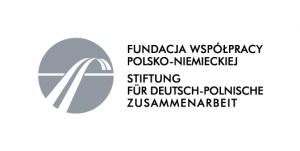27-30 September 2023
Warsaw, Poland
Ever since his Notizen zu einer Arbeit über die Kategorie der Gerechtigkeit of October 1916, the
notion of justice was one of the key concepts of Walter Benjamin’s thinking. It is central to his
paper On the Critique of Violence, as well as to the seminal essays on Karl Kraus, Franz Kafka,
and Nikolai Lesskov. Explicitly mentioned or merely intimated, it operates at the very core of
virtually all Benjamin’s intellectual endeavors – from the Goethe essay, translation theory, and
Trauerspielbuch, to the Arcades Project itself. In fact, set as it is against the recurrent element
of myth, justice can be seen as the driving force behind Benjamin’s oeuvre, and the work itself
may be perceived as an experimental field of various ways of understanding, situating, and
practicing justice in the face of crisis.
And it was crisis – the deep moral, ethical, economic, and political crisis of modernity – which
Benjamin was trying to bear witness to and adequately express. Beginning with his early
diagnoses on the political impact of the new social and cultural movements, Benjamin’s
writings always sought to name the crisis present in the philosophical, theological, and literary
legacies of different European traditions. It was predominantly the crisis of the 1920s and
1930s that created the context for his concepts of poverty, the aura of the work of art, and
history and sovereignty. This conceptuality, however, can hardly be thought of without
reference to the idea of just intervention: the idea of justice as a proper and, precisely, just
response to the crisis of modernity constitutes one of the most original traits of Benjamin’s
philosophical endeavor.
Today, with each new crisis becoming instantly global and overwhelming, the kind of response
Benjamin demanded and sought – a response which would not be merely corrective but truly
responsible, engaged, and engaging – seems more necessary than ever since his untimely
death. Thus, our conference will be devoted to these central dimensions of Benjamin’s work.
However, while welcoming all attempts at a systematic analysis of various understandings and
reconfigurations of the idea of justice and the notion of crisis, as well as the interlinks between
them and his reflections on law, myth, guilt/debt, violence, dialectics, name, image, etc., we
also encourage participants both to engage with the possible productive tensions between
Benjamin’s and other thinkers’ explorations of justice and crisis, as well as to inquire into the
potential application of Benjamin’s intellectual practice within various fields of the humanities
and political as well as artistic activity in general. More specifically, we want to explore the three
intersecting dimensions in which one can observe the interplay between diagnoses of crisis
and ideas of justice: text, image, and practice. In other words, we would like to open up a
space for a discussion of various theories side by side with Benjamin’s ways of facing crisis
and practising the politics of justice, as well as the modes in which his insights and methods
can function outside of the scope of his oeuvre.
Section 1: Law, Justice and Politics (chairs: Hannah Franzki & Tom Vandeputte)
Section 2: Justice in Language and Linguistic Practice (chairs: Ilit Ferber & Monika Tokarzewska)
Section 3: Justice in/of Images and Visual Arts (chairs: Katarzyna Bojarska & Maria Teresa Costa)
Section 4: Bodily and Spatial Practices of Justice (chairs: Agata Bielik-Robson & Marta Olesik)
Section 5: History, Memory and Justice (chairs: Andrzej Leder & Magdalena Gawin)
Section 6: Crisis and Justice (chairs: Mikołaj Ratajczak & Christian Ferencz-Flatz)
Section 7: Justice and Visions of Community (chairs: Alexandra Richter & Sebastian Truskolaski)
Organizing Committee:
Katarzyna Bojarska SWPS University
Adam Lipszyc IFiS PAN
Marta Olesik IFiS PAN
Mikołaj Ratajczak IFiS PAN
Mateusz Skrzeczkowski SWPS University
contact: walterbenjamin2023@gmail.com
Booklet with individual abstracts: IWBS 2022 Abstracts
Program Overview
27 SEPTEMBER / IFiS PAN
10.00 am – Social Activity: A Walk Through the Former Ghetto
2.00 pm – Welcome:
Andrzej Rychard, Director of the IFiS PAN; Marcin Jacoby, Dean of the Faculty of Humanities in
Warsaw, SWPS University; Agnieszka Pantuchowicz, Vice-Director of the Institute of Humanities,
SWPS University
2.30 pm – Keynote Lecture:
Sigrid Weigel: Benjamin’s Discussion of Law and Justice between Athens and Jerusalem
4.00 pm – Break
4.15 pm – Keynote Lecture:
Susan Buck-Morss: Doing Justice to the Past
6.00 pm – Reception
28 SEPTEMBER / SWPS UNIVERSITY
9.00- 10.30 am – Parallel Sessions
Bodily and Spatial Practices of Justice (chairs: Agata Bielik-Robson & Marta Olesik)
Agata Bielik-Robson: Nihilism as Material Justice: Benjamin’s Theology of Entropy
Antoni Zając: Innervated Pessimism and the Infrastructure of Justice
Francisco Naishtat: Redemption Through Immersion: On the Natural History and Justice in Benjamin’s Micrological Theology
History, Memory and Justice (chairs: Andrzej Leder & Magdalena Gawin)
Andrzej Gniazdowski: Phenomenology and Angelology of History: Husserl and Benjamin about “what we call progress”
Andrzej Leder: Who is the Angel gazing at? Some Lacanian Remarks
Anna Wąsowicz: Between Practical Past and Embodied Art: the Case of Walter Benjamin
Justice and Visions of Community (chairs: Alexandra Richter & Sebastian Truskolaski)
Carolin Duttlinger: Beyond Individual Authorship: Benjamin’s Journalism as Intervention and Engagement
Jaime Cuenca: An Adress with Three Audiences, and with None
Sabine Schiller-Lerg: Zensur – zwischen Kontrolle und Unterdrückung: Walter Benjamins Deutung eines Machtinstruments
Justice in/of Images and Visual Arts (chairs: Katarzyna Bojarska & Maria Teresa Costa)
Clemens-Carl Härle: Gerechtigkeit gegenüber der Farbe?
Paweł Mościcki: What Color Is Justice?
Katrin Weleda: Drei Minuten des Leidens. Gedanken und Gesichte eines Geköpften
Justice in Language and Linguistic Practice (chairs: Ilit Ferber & Monika Tokarzewska)
Dennis Johannssen: Language Justice and the Critique of Linguistic Violence
Nobuyuki Kakigi: Translation as Action for Justice of Languages: An Inquiry into the Practical Meaning of Walter Benjamin’s Theory of Translation
Caroline Sauter: Translation and Justice: Benjamin and Derrida
10.30 am – Break
10.45 am – 12.15 pm – Parallel Sessions
Bodily and Spatial Practices of Justice (chairs: Agata Bielik-Robson & Marta Olesik)
Burak Üzümkesici: Bodies at a Standstill: The Political Promise of a Gesture and Its Reproducibility
Brendan Moran: “Veil”, Justice, and the Body in Benjamin and Luste Boulbina
Michal Pospiszyl: Walter Benjamin in the Shtetl
History, Memory and Justice (chairs: Andrzej Leder & Magdalena Gawin)
Jeon Gyuchan: Redemption of Justice Through Memory
Johannes Otto Riedner: Benjamin, Bloch, Kracauer, Scholem
Magdalena Gawin: Benjamin Against Fascism – A Critical Analysis of Memory
Justice and Visions of Community (chairs: Alexandra Richter & Sebastian Truskolaski)
Markus Hennig: Die Gemeinschaft zwischen Mythos und Gerechtigkeit
Thomas Lindenberg: Ästhetische Erziehung zur Bildung einer gerechten Gemeinschaft
Sophia Buck: Walter Benjamin’s ‘Outsiders': Against ‘Optische Täuschungen’ of National communities and their literary histories
Justice in/of Images and Visual Arts (chairs: Katarzyna Bojarska & Maria Teresa Costa)
Beatriz Sánchez Santidrián: “Visual justice” in the Artistic Practices of History. Unearthed Libraries and the Recovery of Dissident Memory
Tomasz Szerszeń: Read from the Ashes: to Do Justice
Katarzyna Bojarska: History Behind/Before the Image and the Image of History Behind Us
Justice in Language and Linguistic Practice (chairs: Ilit Ferber & Monika Tokarzewska)
Ludmila Fuks: Quote without inverted commas. Montage for justice of things
Elliott J. Niblock: Vergegnung: The Mis-Meeting Between Martin Buber and Walter Benjamin
Yu-jin Chang: Justice is No Myth: An Interpretation of the Antithetical Synonyms in Benjamin’s Works
12.15 – 1.15 pm Lunch
1.15 – 2.45 pm – Parallel Sessions
Bodily and Spatial Practices of Justice (chairs: Agata Bielik-Robson & Marta Olesik)
Łukasz Moll: Walter Benjamin as the Chiffonier of the Common
Nélio Conceição: Presence of Mind and its Practices Between Body and History
Judith Kasper: Benjamins Lumpensammler und Ruth, die Ährenleserin
History, Memory and Justice (chairs: Andrzej Leder & Magdalena Gawin)
Matthias Roick: How to do Justice to the Past? Intellectual History, Non-Linear Narratives, and the Quest for Early Modernity
Santhia Velasco Kittlaus: Where Do We Stand When We Stand Up for Justice? A Comparison of the Historian’s Position in Walter Benjamin and Michel-Rolph Trouillot
Urszula Zbrzeźniak: Philosopy as a Practice of Justice
Justice and Visions of Community (chairs: Alexandra Richter & Sebastian Truskolaski)
Ori Rotlevy: Educative Violence and Just Communities?
Ewa Majewska: Procedures of Justice – Towards Historical Dimensions of Weak Solidarity
Turkuaz Benlioglu: Towards an Improperly Human Community? Walter Benjamin on Solitude and Community
Justice in/of Images and Visual Arts (chairs: Katarzyna Bojarska & Maria Teresa Costa)
Daniel Gönitzer: Benjamins Gerechtigkeit des Humors, oder: Die Ungerechtigkeit, dass „die Schmetterlinge im Zoo keinen Käfig haben“
Katarzyna Murawska-Muthesisu: Caricature as Mass Art and Art History as Social Justice
Christian Ferencz-Flatz: The Most Real Gaze into the Heart of Things: Doing Justice to History via Advertisements
Justice in Language and Linguistic Practice (chairs: Ilit Ferber & Monika Tokarzewska)
Agata Kobylska: Den Dingen Gerechtigkeit widerfahren lassen. Benjamins Spätstil in der Berliner Kindheit um Neunzehnhundert
Astrid Seeger: Sprache an der Schwelle zur Gerechtigkeit – Originaltext zwischen Verfremdung und Entfaltung in Walter Benjamin’s Übersetzungspraxis
Monika Tokarzewska: Der Humor als ‘angewandte Gerechtigkeit’. Humor und Erneuerung des (sprachlichen) Weltbezugs bei Walter Benjamin
5:00 pm – Social Activity
Warsaw City Museum: The Opening of the Exhibition ‘Childhood and Crisis’ and the Special Panel on the Exhibition (Katarzyna Bojarska, Agata Jarosławiec, Marta Rakoczy, Zofia Rojek)
29 SEPTEMBER / SWPS UNIVERSITY
10.00- 11.30 am – Parallel Sessions
Bodily and Spatial Practices of Justice (chairs: Agata Bielik-Robson & Marta Olesik)
Jakub Momro: Embodiment and Justice: Nominalism and Language Utopia in the Work of Walter Bennjamin and Theodor. W. Adorno
Jakub Gorecki: “Idiosyncrasy as the Highest Critical Organ”: Karl Kraus and Bodily Justice
Federica Muré: Justice as a “Technique of Nearness”: A Close Reading of Benjamin’s Anecdote-Theory
History, Memory and Justice (chairs: Andrzej Leder & Magdalena Gawin)
Evelyn Schuler Zea: Die Aufgabe der Gerechtigkeit
Karol Sauerland: Die Rolle des Begriffs der Gerechtigkeit für die Beurteilung von antitotalitären Bewegungen
David Galashvili: Progress and Catastrophe in the Modern World
Law, Justice and Politics (chairs: Hannah Franzki & Tom Vandeputte)
Tom Vandeputte: Justice at Point Zero: Benjamin’s Early Critique of Law
Klaus Mladek: Gerechtigkeit ist die ethische Seite des Kampfes
Tamara Tagliacozzo: Messianism and Happiness: A Possible Reference to Kant in Benjamin’s Theological-Political Fragment
Justice in/of Images and Visual Arts (chairs: Katarzyna Bojarska & Maria Teresa Costa)
Rita Velloso: From Moscow to Berlin: the Urban ‘Thought-Images’ and the Tasks of Criticism
Jeremy Rafuse: Walter Benjamin and the Visual and Performance Arts
Vladimir Rizow: Reading Images: Walter Benjamin and Louis Althusser in Conversation
11.30 am – Break
11.45 am – 1.15 pm – Parallel Sessions
Bodily and Spatial Practices of Justice (chairs: Agata Bielik-Robson & Marta Olesik)
Karolina Jesień: The Adventures of Benjamin’s Body: On the Politics of Leib and Körper from the “Outiline of the Psychophysical Problem” to the Arcades Project
Szymon Wróbel: Walter Benjamin’s Attempt at Revision of the Order of Kant’s Transcendental Cartography
Andreas Köpfer & Robert Schneider-Reisinger: Raum- und Körperentwürfe bei Walter Benjamin und Siegfried Kracauer und deren Relevanz für die Critical Disability Studies
History, Memory and Justice (chairs: Andrzej Leder & Magdalena Gawin)
Sarah Ralfs: Zur Überlieferung der Steine. Benjamins Vision für eine gerechtere Gemeinschaft nach der Hoffnungslosigkeit
Ulrich Mathias Gerr: Last der Geschichte – Entstellung und Gerechtigkeit im Kontext des ‘Bucklicht Männlein’
Manuela Sampaio de Mattos: Testimonial Clinics in Brazil – a Benjaminian reading
Law, Justice and Politics (chairs: Hannah Franzki & Tom Vandeputte)
Everet Smith: Concerning the Law in Walter Benjamin’s Critique of Violence
Vinsent Nollet: “The Critique of Violence is the Philosophy of Its History”: History, Theology and Politics in Walter Benjamin’s Early Historical-Philosophical Writings
Justice and Crisis (chairs: Mikołaj Ratajczak & Christian Ferencz-Flatz)
Filip Brzeźniak: “Enslaved Forebears” or “the Emancipated Heirs” – Walter Benjamin’s Politics of Inheritance and (In)transmissibility as Crisis
Anna Migliorini: A Leap and a Bow between Krise (und Kritik) and the Real State of Exception
Mikołaj Ratajczak: Doing the Crisis Justice: Benjamin’s Conceptual Politics in Theorizing Crisis
11.15 – 2.15 pm Lunch
2.15 pm – 3.45 pm – Parallel Sessions
Law, Justice and Politics (chairs: Hannah Franzki & Tom Vandeputte)
Hannah Franzki: Foundational Violence and Dialectical Images: Thinking with Walter Benjamin about the Politics of Time in War Crime Trials
Thomas Regehly: Die Gerechtigkeit und das Rettende
Justice and Crisis (chairs: Mikołaj Ratajczak & Christian Ferencz-Flatz)
Caroline Adler: “…ehemals gesicherte Begriffe von Gerechtigkeit”. “Drei Bücher [des Heute]” und die Krisis der europäischen Intelligenz
Brian Britt: Crisis, Critique, and the Rightous Storyteller
Julia Dybczyńska: The Myth of the Atom
3.45 pm – Break
4:00 pm [new time] – Keynote Lecture:
Eli Friedlander: Language, Just Language
6:00pm [new time] – General Meeting of the International Walter Benjamin Society
30 SEPTEMBER / SWPS UNIVERSITY
10.00 am – Social Activity: A Walk through the Future Kibbutz
1.00 pm – Break
1.15 pm – Special Panel:
Practices of Justice in Contemporary Poland
2.45 pm – Closing Remarks and Farewell





